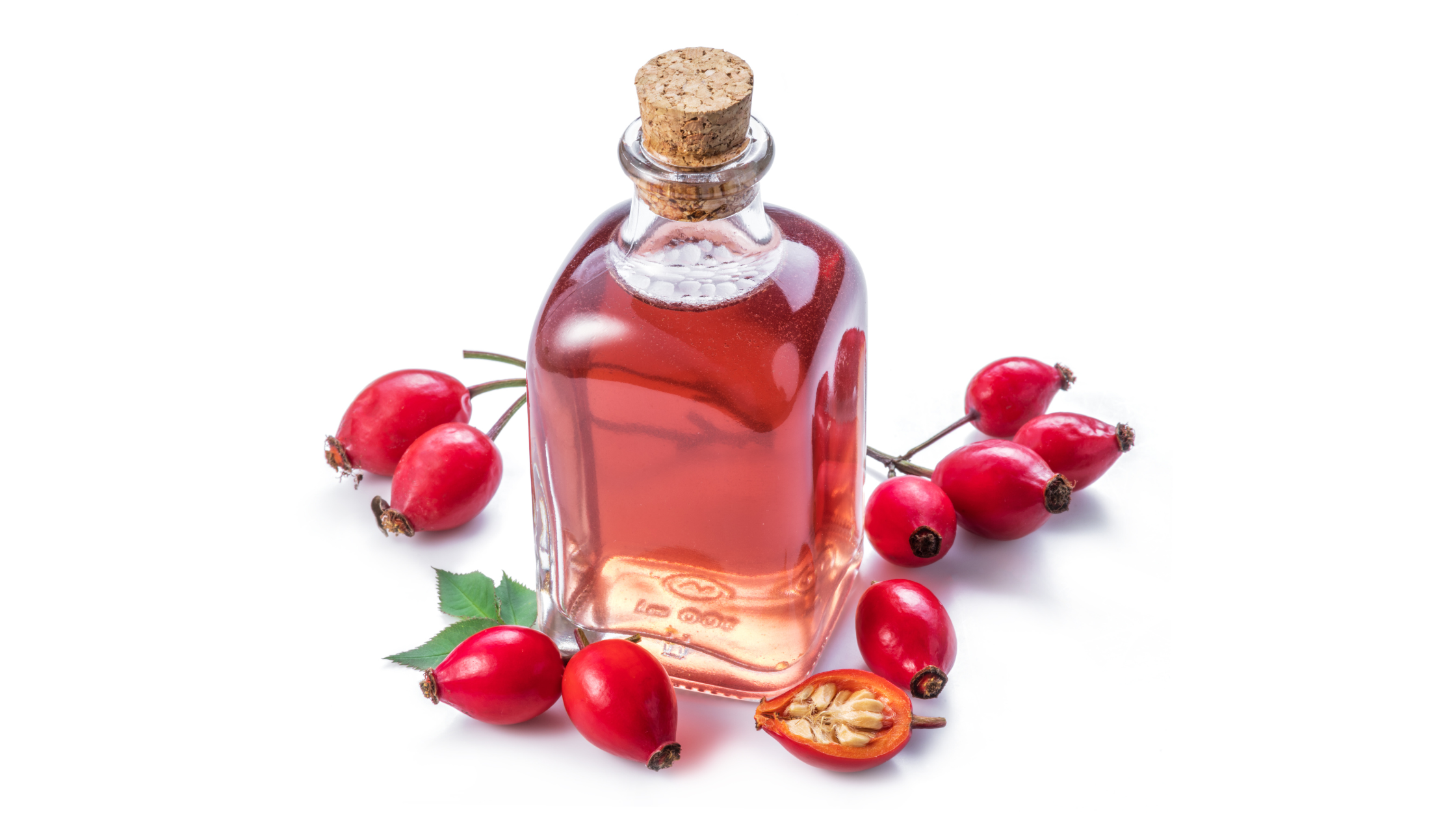The Power of Rosehip Oil for Supporting Skin Health

As we approach Valentine's Day, forget the bouquets and chocolate boxes — we've got roses on the brain in the form of rosehip oil! This potent secret weapon, extracted from the seeds of rose bushes, is packed with a punch of skin-loving benefits. In this post, we'll explore the world of rosehip oil, from its fascinating origins to its science-backed power to keep your skin glowing all year round.
What is Rosehip Oil?
Rosehip oil, a natural oil derived from the seeds of wild rose bushes — particularly the Rosa canina and Rosa rubiginosa varieties — has been a staple in traditional healing practices for centuries. Known for its diverse healing properties, it has been used to reduce inflammation, soothe burns, and even combat the effects of common colds and other infectious diseases. Additionally, it has played a role in alleviating gastrointestinal and inflammatory disorders. In the world of modern skincare, rosehip oil is celebrated for its ability to nourish, protect, and revitalize skin.
Rosehip oil's esteemed role in skincare is backed by both historical use and scientific research. Celebrated for centuries by figures like Cleopatra and used traditionally by Chilean women to combat sun damage, this natural oil is now recognized for its extensive benefits at a cellular level. Its composition of vitamins, antioxidants, and essential fatty acids makes it a potent skincare ingredient.
How Does Rosehip Oil Work to Support Skin Health?
Rosehip oil, revered for its diverse skincare benefits, owes its effectiveness to a unique combination of natural properties. Here's how it works to support skin health:
-
Antioxidant Power: Rosehip oil is rich in vitamins C and E, powerful antioxidants that combat free radicals that contribute to premature aging. This helps in maintaining a youthful appearance and preventing damage caused by environmental factors.
-
Occlusive Barrier: Acting as a protective barrier, rosehip oil seals in moisture with vital fatty acids, preventing water loss from the skin. This function aids in maintaining hydration levels, essential for visible wrinkle reduction, skin elasticity, and suppleness.
-
Emollient Qualities: The emollient properties of rosehip oil make it an excellent moisturizer, softening the skin and promoting a smooth texture. This contributes to the overall health and vitality of the skin.
The good news about rosehip oil doesn’t end there! Beyond these core properties, rosehip oil contains other key ingredients that further support skin health:
-
Linoleic Acid: Known for its anti-inflammatory properties, linoleic acid helps soothe irritated skin and can be beneficial for conditions such as acne. It also contributes to the skin's barrier function.
-
Oleic Acid: This fatty acid is known for its moisturizing properties, helping to nourish and hydrate the skin. It aids in achieving a healthy balance, especially for dry or mature skin.
-
Beta-Carotene: A precursor to vitamin A, it promotes cell turnover, combats oxidative damage, and reduces hyperpigmentation, contributing to a radiant complexion.
How Qyral Uses Rosehip Oil to Nourish Your Skin
At Qyral, we love rosehip oil! It’s a natural, science-backed ingredient that delivers powerful skin nourishing results. You’ll find rosehip oil in our serums and creams when compatible with your skin and skincare goals. By harnessing its protective, nourishing, and rejuvenating qualities, rosehip oil offers a holistic approach to achieving healthy, youthful skin.
Final Thoughts
The power of rosehip oil for supporting skin health is backed by folk wisdom and lab-tested results. Today, we’ve proven what our ancestors knew for centuries — there really is magic in rosehip oil! It's a powerhouse for all skin types, offering a natural way to achieve a healthy, youthful glow not just for Valentine’s Day, but every day.
The information in this blog post is intended for educational purposes only and is meant to offer general guidance and information. It does NOT offer medical advice or medical treatment, does NOT constitute the practice of medicine, and should NOT be used as a replacement for licensed medical instruction.